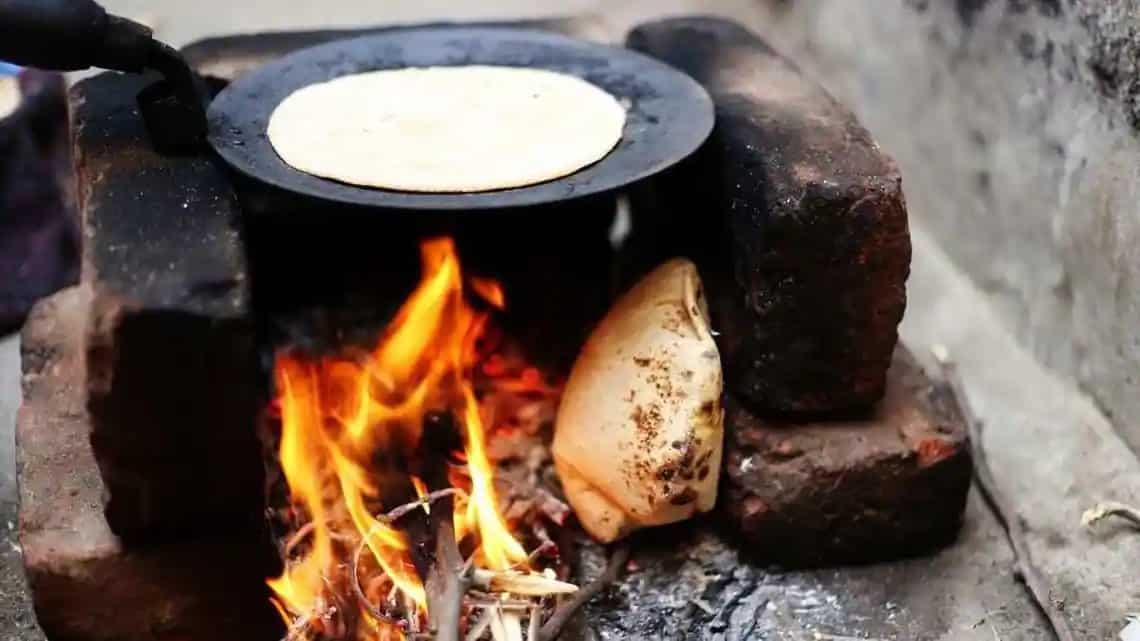When I visited Singhu border in January, where thousands of farmers are camped, agitating against the government’s new farm laws, I met a man called Satinder Cheema. Perhaps in his mid-50s, Cheema has broad shoulders, an unkempt beard, a tight blue turban, and a kurta that gives away his survival struggles for the past two months. “Sadda khet, sadda haq aur roti ki ladai hai (it is a fight for our farm, our rights, and our roti),” Cheema said.
In deprivation or prosperity, roti has always stood for food and survival in India. From Hindi proverbs like 'Do joon ki roti’ (‘joon’ in Awadhi means time) to political cries of 'Roti, kapda aur makaan' (food, clothes, and shelter), roti is at once a basic necessity of life and an aspiration.
As a chef, I was surprised by the sheer numbers of people being fed at the Singhu protest site, and I was told I could experience similar kitchens, langar, and sewa anywhere I go. We usually estimate an average footfall in a restaurant kitchen, but not here, not when you are making langar. When langar food is made, it is made with the utmost respect for each morsel. All the langaris (people who cook) are experts in their craft and cooking in vast quantities; hence nothing goes waste. I studied for a couple of years at Sri Guru Nanak Public School in Ramgarh, Jharkhand. I remember during Gurupurab, we used to work tirelessly serving and assisting the langaris. My visit to the Singhu border brought back those memories.
Cheema was cleaning and setting up the kitchen when I sat with him to understand everything first hand. I was served a simple but delicious meal of rotis with some ghee and chutney. I started eating while he was talking about his journey. In Delhi, it all started with protestors marching with minimal necessities. Wheat for roti or parathas, salt and jaggery, dal, and vegetables. “We prepared ourselves to survive only on roti if we had to. When we go to the farm, we don't carry much, ek gathri mein roti, pyaaz, namak aa jata hai, pani aur chhaon khet mein mil hi jata hai (one bag full of roti, onions, and salt to enjoy in the shade with some water),” said Cheema.
In the Sikh faith, as it is for the most basic form of bread in most faiths, roti is sacred. There’s a story about this too. Guru Nanak Dev ji was in Manikaran near Kullu in Himachal Pradesh with his disciples Bhai Bala and Bhai Mardana, and Mardana felt hungry only to realize that they had no food. The Guru asked him to go around town and collect food for langar and come back, and so it happened. Soon, they faced another problem: no fire to make rotis, upon which Guru Nanak again asked them to lift the rock; magically, a hot spring cropped out. Guru asked them to put rolled rotis in hot water and pray to God; “if they float back, then donate one in the name of God, and the rest is for us,” he said. God heard the prayer, and rotis float.
“This makes roti all the more sacred for us. Nobody will ask your identity; you are here because Nanak wanted you to be here, we will feed you. We will shower our love on you because you are supporting us. You are coming to hear our stories,” said Cheema.
Irrespective of what side of the protests you support, can you negate the humane side of this protest? Big machines to make rotis, massive pots and pans, pizza, or puri-bhaji -- don't let these things derail what is essentially the struggle and fight for roti.
Pre-Liberalisation India fought a similar fight for ‘roti’ (an honest living) which you can see in our music and movies. Rajesh Khanna's movie Roti in 1974 highlighted an ordinary person's struggles. In recent times, Gurdaas Mann's 2013 song Roti Magar (Chasing Roti) celebrates life and this struggle. Munshi Premchand once wrote, "Main ek majdoor hoon. Jis din kuch likh na loon, us din mujhe roti khaane ka koi haq nahi (I am a labourer. If I fail to write one day, I lose the right to eat).
At the end of our conversation, Cheema left me with a nugget of wisdom: “Wotti aur roti ki hamesha izzat karni”. ‘Wotti means’ wife in Punjabi, but I would interpret this conversation as ‘one must always respect the bread, the bread maker, and the bread earner’.


